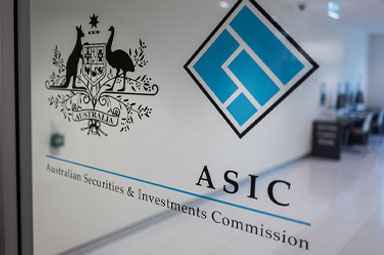Grassroots rising
In the absence of formal leadership, members of the financial advice industry are standing up and forming organic grassroots movements.
‘Nature abhors a vacuum’, and so does the financial advice industry.
The former trade associations representing financial advisers have shifted to a new modus operandi, monitoring their members in a quasi-regulatory fashion and providing them education and CPD, rather than representing their political interests.
This pivot, which they say is all about the public interest, has created a vacuum.
And as Aristotle (or one of his contemporaries) foresaw, it is causing quite the ruckus.
For the past few years, advisers have come to terms with a state-mandated ban on investment commissions, a state-mandated model for life insurance advice remuneration and a state-mandated requirement that they register with the Tax Practitioners Board, among other decrees from on high.
The latest example of unwarranted government intervention – the farcical circumstance that a state-appointed panel of people with close ties to education providers will approve and set mandatory education standards – seems to have been the straw that broke the camel’s back.
Even a cursory look at the comments section of this website or the corners of social media where advisers gather – let alone the mass of off-record commentary in my personal email inbox – demonstrate just how severe the levels of distress have become.
In all of these instances of government involvement in the sector they are supposed to lead, the AFA and FPA have welcomed the final legislation or aided its eventuation, despite the fact that many members would prefer (at least in the cases of LIF, TPB and education, if not FOFA) that the laws were overturned.
Indeed, in the case of the FPA, its chair seems to believe not only that the status quo is acceptable, but that it is not the association’s role to lobby for change.
In his interview with ifa last month, Neil Kendall was asked whether he sympathised with financial advisers who haven’t welcomed the forced education regime with open arms and whether the FPA supports the legislation.
His response was that the “debate is over” and that if advisers don’t like it they should lobby their local MP.
When I got over my initial shock, I pressed a little further, suggesting that perhaps members may be expecting their representative organisation to do that on their behalf.
“Absolutely and when that's up for grabs, we're out there doing that, but that legislation has been passed,” he said. “It's a decision that has been made, and in our view, it's not a decision that is going to be changed.”
Similarly, while AFA chief executive Philip Kewin made some very positive noises in July last year – when he lashed out at FSC members, telling them to “stop lobbing grenades at advisers” – the organisation he leads has also made no noises about opposing the education regime or seeking repeal of any other legislation that is causing advisers pain in the form of unnecessary red tape.
Once again it demonstrates just how far from their original mission statements the mainstream associations have travelled.
Embarking on a policy agenda that rules out existing legislation as out of bounds and simply accepts government whim as final is about as weak a lobbying strategy as you can get.
It also shows just how out of touch the associations are with what their members want them to be.
At the time of writing, 68.1 per cent of respondents to our latest straw poll want their professional association to lobby for legislative change.
I guess the adage that the ‘customer is always right’ goes out the window when you have a government mandate ensuring your long-term membership.
The associations have made it clear they do not want to upset our esteemed overlords in Parliament, noble and wise decision-makers that they are.
Perhaps that is a legitimate plan to curry favour and will earn the ear of power, ultimately resulting in a better outcome for their members – and of course the broader public they now ostensibly serve.
But judging by the current situation it hasn't been a very successful strategy so far, in terms of either policy change or member satisfaction.
Moreover, it is not the kind of leadership advisers want and need when they feel their very livelihoods are at stake.
Leadership vacuums can sometimes lead to danger, providing a window for sinister forces to take advantage, as happened across Europe in the 1930s.
Luckily so far, the advocacy vacuum left in Australian financial services by the associations’ operational pivot has not been usurped by bad guys but by genuine grassroots activism of a positive kind.
For example, the comments made by Synchron directors Don Trapnell and Michael Harrison that they will back advisers to fight overzealous regulation should be welcomed.
These individuals are not noisy fringe dwellers but respected business leaders who understand the political process. They do not blindly or ignorantly assume that their efforts will result in legislative change. But in giving voice to the concerns of their authorised representatives they are showing courage and at least having a crack at helping politicians see sense.
Unlike the two major associations, the AIOFP has also not been afraid to put uncomfortable issues on the agenda, actively lobbying MPs on issues such as ASIC’s anti-competitive stance on section 923A and labelling of ownership structures in vertically integrated networks. It has done so even after the government’s position has been legislated, because that is what its members expect.
Individual practitioners such as William Johns and Adam Kennedy have asked serious questions publicly about FASEA and its potentially conflicted ties to education providers and associations. Their efforts may have in part resulted in the resignation of FPEC chair Mark Brimble and they have continued to agitate for change, despite facing online bullying and trolling in the process.
In a less overtly political sense, the XY Adviser organisation – first publicised by ifa in October 2014 – is another example of positive grassroots momentum in the financial advice industry. From a small Facebook group of like-minded mates in the industry, the initiative now reaches more than one thousand professionals and advocates for positive consumer outcomes in its own way.
Though it maintains an innocent and inclusive party line, XY is undoubtedly a threat to the major associations, whose relationship with members is increasingly strained.
As this landscape shifts so too does the role of the media. Rather than an objective information provider, ifa sees itself as being an active participant, championing the independent and non-bank financial advice sector and holding entrenched powers to account.
While our competitors watch on lamely as the government makes life difficult for readers, we hope that our events and our journalism help provide that advocacy function, alongside the grassroots efforts that are emerging and that we support.
It is not too late for the two major associations to change course, admit the pivot was a mistake and revert to their previous role as member advocate, a role that is required now more than ever before.
They need only look over the fence at CPA Australia to see what might happen if they don’t.
Aleks Vickovich is managing editor of ifa.
To have your say in the latest straw poll visit: https://www.ifa.com.au/polls/47-what-is-your-preffered-way-to-lobby-for-legislative-change
Listen to the full interview with FPA chair Neil Kendall here:
Subscribe to 
Never miss the stories that impact the industry.






